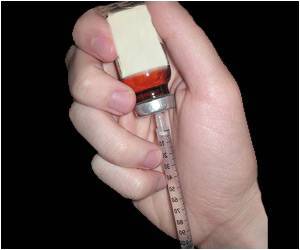A new study has found anti-clotting drug called bivalirudin (Angiomax) that beats the standard combination drug therapy for patients with acute coronary syndromes such as heart attacks
A new study has found anti-clotting drug called bivalirudin (Angiomax) that beats the standard combination drug therapy for patients with acute coronary syndromes such as heart attacks. This new blood thinner seems to be less risky for patients suffering from acute coronary syndromes.
The Results of the ‘Acute Catheterization and Urgent Intervention Triage Strategy (ACUITY) trial’ were published in November issue of the New England Journal of Medicine. The Medicines Company and Nycomed, which market Angiomax, funded the study. A team lead by Dr. Gregg W. Stone, a professor of medicine and director of cardiovascular research and education are conducting the research.Dr. Stone said: "We use bivalirudin at Columbia in the vast majority of cases and have found out that compared to heparin, it is just as effective and safely allows us to do angioplasty with a major reduction in bleeding episodes."
The journal described a trial that involved around 14,000 patients with heart attack or other acute coronary syndromes. The patients were assigned to one of three drug regimens: a package treatment including heparin; a similar package including bivalirudin; or bivalirudin alone. The results showed that the patients treated with Angiomax, also known as bivalirudin, had similar rates of serious complications, such as death, heart attack and repeat artery clearing procedures as the other groups, but had significantly lower rates of serious bleeding.
Only 3 percent of those getting bivalirudin alone had major bleeding episodes comparing to that of 5.7 percent of those getting the heparin package, for patients, that makes all the difference, Stone said. Moreover, the researchers were able find that the incidences of artery blockages or major bleeding were also reduced by the usage of bivalirudin by about 14 percent compared to a drug package including heparin.
"The big difference was the reduction of major bleeding, almost 50 percent," Stone added. "Major bleeding has been associated with higher mortality, so it is important that bivalirudin, which reduced the risk of major bleeding up to 47 percent, could be reserved for patients with history of bleeding such as anemia.” – He added.
To conclude, the drug has been currently approved as a replacement for heparin in all nonemergency angioplasty procedures.
Advertisement
SRI











